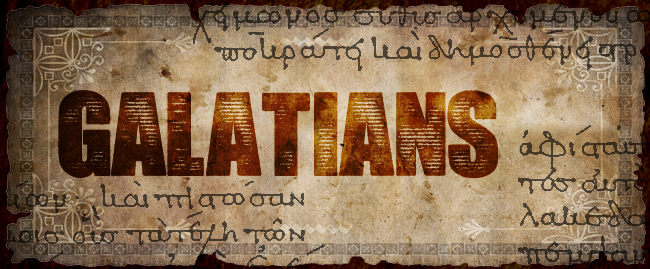Tonight we will be reading through Galatians 3:1-18. Paul begins this section with the acerbic and vitriolic introduction of “You foolish Galatians” (Gal. 3:1). Throughout the Hebrew Scripture, and particularly in Proverbs and Ecclesiastes, the Bible contrasts the fool with the wise. In Biblical literature (and in the Greek philosophical tradition), the fool isn’t someone who lacks intelligence but someone who is gullible, disgraceful, or lacks any perception of what is morally or religiously correct. In the Sermon on the Mount, Jesus says that calling someone a “fool” violates the commandment against murder. Matt. 5:22. The only other time that Paul will use the word “fool” as an insult is in his rhetoric concerning God’s wrath on the unrighteous in Romans 1.
After calling the Galatians “fools,” Paul then calls them “bewitched.” The Greek word (baskaino) has the sense of being blinded by malicious magic, being hypnotized, or being placed under a spell that suspends all reason. Paul is saying that his audience saw in their mind Jesus Christ crucified, but now someone has cast a spell over them blinding their mind’s eye and preventing them from seeing Christ crucified. That which they knew to be true, they no longer do. The only explanation for the congregation’s turn of heart is that someone must have cast a spell on them since no one in their right mind would have turned their back on Paul’s gospel teaching.
As we read Paul’s scathing criticism of his audience, think through why Paul would be this upset. In his other letters, particularly to the Corinthians, Paul can be upset but he never goes this far. Think about why does the problem in Galatia warrant such speech? Why would Paul think he must use such strong language?
Dinner is at 6. The menu is potato-chicken casserole. Discussion about 6:45. Hope to see you here. Please bring a friend.
The fool has said in his heart, “There is no God.” *
Psalm 14:1-4
All are corrupt and commit abominable acts;
there is none who does any good.
The Lord looks down from heaven upon us all, *
to see if there is any who is wise,
if there is one who seeks after God.
Everyone has proved faithless;
all alike have turned bad; *
there is none who does good; no, not one.
Have they no knowledge, all those evildoers *
who eat up my people like bread
and do not call upon the Lord?

